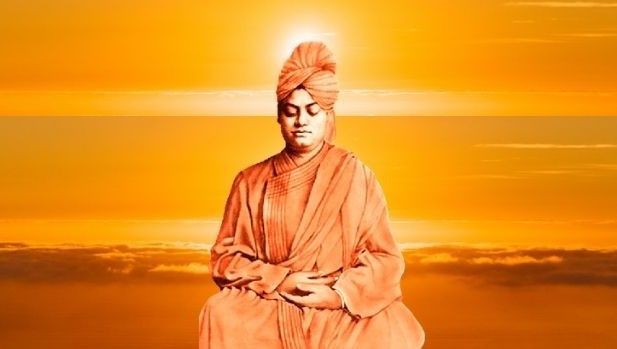One evening the Raja of Khetri wished to hear songs sung by a professional dancing girl, as was the custom in those days. At that time, Swami Vivekananda was staying as Ajit Singhji’s guest at the Khetri palace. The Raja invited Swamiji to join him but Swamiji refused and sent a message that as a sanyasi it was against his principles to attend such a party.
The singer was deeply grieved when she heard this and started to sing, as it were in reply, a song of Surdas, a Vaishnava saint. Through the quiet evening air, the girl’s sweet, plaintive voice reached the sensitive ears of Swamiji. The message of the song was – O Lord, look not upon my evil qualities. Thy name, O Lord, is same-sighted. One piece of iron is in the image in the temple, and another in the butcher’s hand, but when they touch the philosopher’s stone, both alike turn into gold. So, Lord, look not upon my evil qualities.’
The whole song expressing the truth that God dwells in everyone and everything touched Swamiji deeply. He soon reproached himself, muttering, “What sort of a sanyasi are you that you still distinguish a singing-dancing woman from yourself?”
The song taught him a great lesson. Swamiji realized he could not reject anymore, for in all lies the same Self. He then rushed to the music room and listened to the song. It is said that Swamiji addressed the woman as “Mother” and begged her pardon for his discourteous behaviour.
– From the book ‘Swami Vivekananda: The Friend Of All’
This incident teaches us that one should not judge others based on their profession and that one should look at everyone with an equal eye. But deep inside, it also points out that we shouldn’t feel any shame in admitting our mistakes or wrongful thinking. You won’t become lesser if you do that. If someone as great as Swami Vivekananda sees no hesitation in admitting it, who are we?









Comments & Discussion
4 COMMENTS
Please login to read members' comments and participate in the discussion.